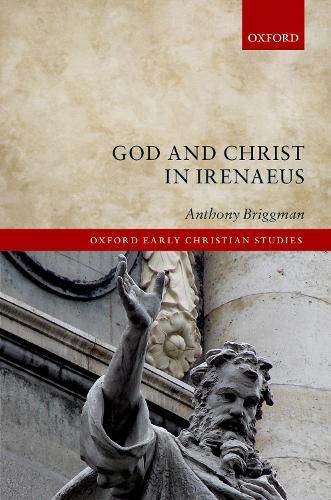Readings Newsletter
Become a Readings Member to make your shopping experience even easier.
Sign in or sign up for free!
You’re not far away from qualifying for FREE standard shipping within Australia
You’ve qualified for FREE standard shipping within Australia
The cart is loading…






For too long certain scholars have been content to portray Irenaeus of Lyons as a well-meaning churchman but incompetent theologian. By offering a careful reading of Irenaeus’ polemical and constructive arguments, God and Christ in Irenaeus contradicts these claims by showing that he was highly educated, trained in the rhetorical arts, aware of general philosophical positions, and able to use both rhetorical and philosophical theories and methods in his argumentation. Moreover, the theological account laid down by his pen was original and sophisticated, supremely so for one of the second century.In contrast to readings that minimize the metaphysical dimension of Irenaeus’ theology, Anthony Briggman establishes as pillars of Irenaeus’ polemical argumentation and constructive theology his conception of the divine being as infinite and simple, the reciprocal immanence of the Word-Son and God the Father, divine generation, the union of the divine Word-Son and human nature in the person of Christ, and the revelatory activity of the infinite and incomprehensible Word-Son, amongst other features of his theology. Briggman offers a fundamentally new understanding of Irenaeus and his thought.
$9.00 standard shipping within Australia
FREE standard shipping within Australia for orders over $100.00
Express & International shipping calculated at checkout
For too long certain scholars have been content to portray Irenaeus of Lyons as a well-meaning churchman but incompetent theologian. By offering a careful reading of Irenaeus’ polemical and constructive arguments, God and Christ in Irenaeus contradicts these claims by showing that he was highly educated, trained in the rhetorical arts, aware of general philosophical positions, and able to use both rhetorical and philosophical theories and methods in his argumentation. Moreover, the theological account laid down by his pen was original and sophisticated, supremely so for one of the second century.In contrast to readings that minimize the metaphysical dimension of Irenaeus’ theology, Anthony Briggman establishes as pillars of Irenaeus’ polemical argumentation and constructive theology his conception of the divine being as infinite and simple, the reciprocal immanence of the Word-Son and God the Father, divine generation, the union of the divine Word-Son and human nature in the person of Christ, and the revelatory activity of the infinite and incomprehensible Word-Son, amongst other features of his theology. Briggman offers a fundamentally new understanding of Irenaeus and his thought.